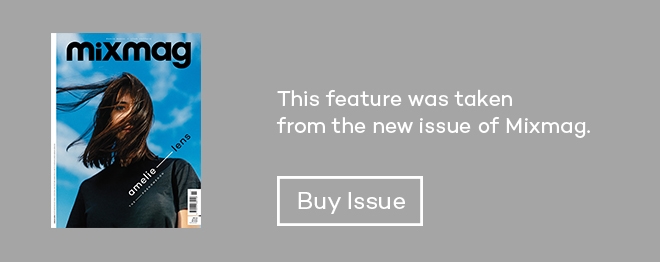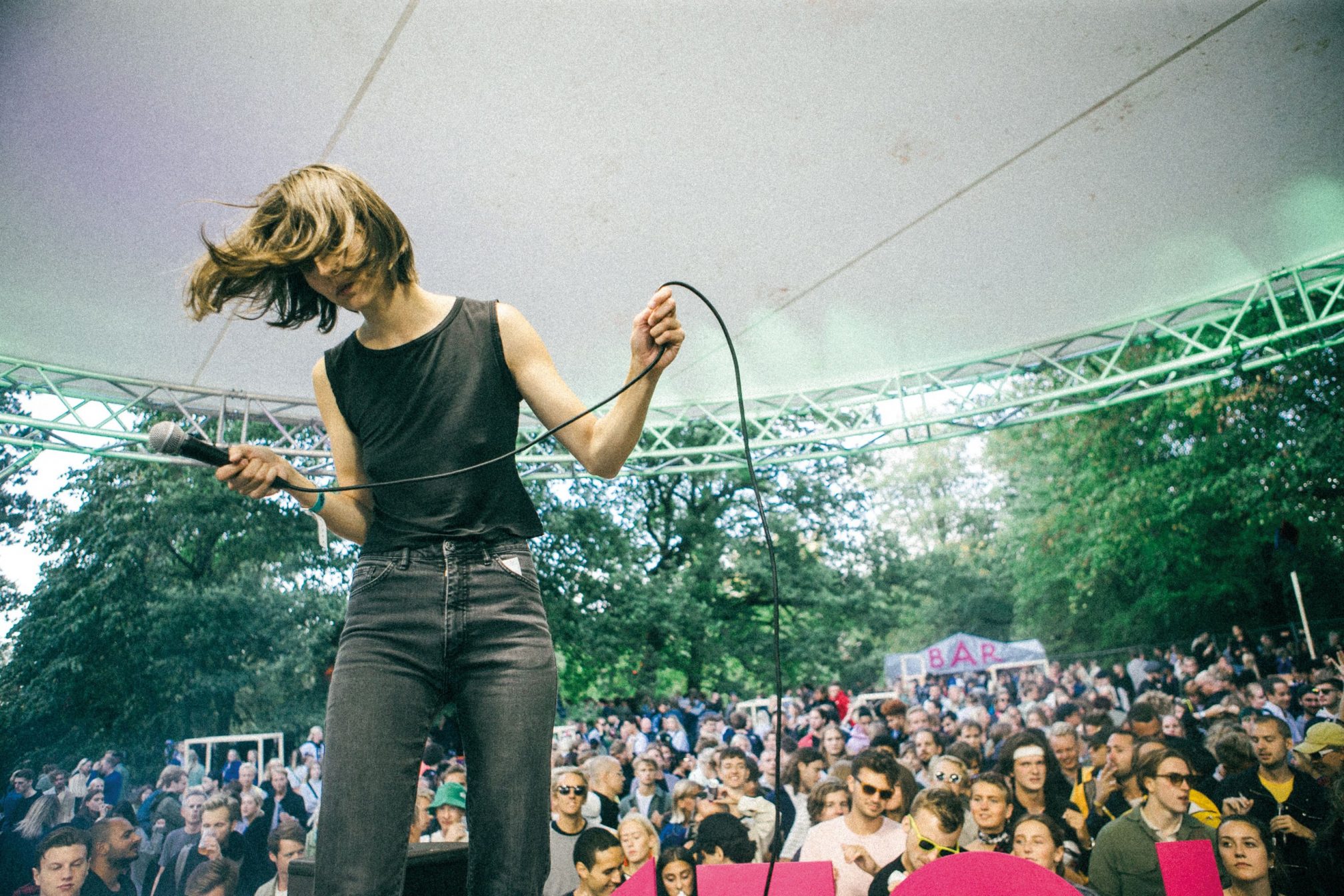 Scene reports
Scene reports
Gothenburg's Way Out West is keeping the city raving through tough challenges
DIY spirit is rife in the Swedish capital's clubbing scene
We were warned that it would be difficult to dance in here, but worth the effort. Sound advice: the gravel underfoot shifts and sinks either side of the disused train tracks running through this tunnel, but the energy is overwhelming.
Fists and arms thrust up to atmospheric, rolling tech, the lighting creating electrical storms of blues, purples and reds. Five minutes from Gothenburg Central Station, local heavyweights Aniara have hijacked an all-but-forgotten railway siding,
and one half of roster stars Genius of Time, Arkajo, is in full effect.
The session’s raison d’être is Way Out West, one of Scandinavia’s premiere festivals at which the entire town wants to party. But Mixmag has wandered off the official nighttime programme into one of the city’s ‘underground clubs’, where legal loopholes offer a chance to escape Sweden’s early curfews and prohibitive venue costs.
“Every unlicensed party is organised as a private party, so you need to have guest list for entry,” explains Martin Nowakowski when we ask how these events work. Also known as DJ Lily, his uncompromising techno takes us through to tomorrow morning, packing the heaviness his two labels, BROR and LILIES, are best known for.
“We don’t really have big-room clubs that hold major techno names,” he explains. “The Swedish scene is more about the parties themselves that move from place to place. So you never know if the same promoter is going to be able to find a good new venue. That’s what keeps it exciting, but it’s also very hard on the community, because the community needs a beacon.”
With tens of thousands marauding around Gothenburg for Way Out West it would be easy to assume this could be that beacon – if only for one weekend a year. That’s not quite the case, though, as the main event doesn’t prioritise dance music per se.
Focussing during the day on Slottsskogen, a stunning park in the centre of the city, 2018’s headliners run the gamut from Patti Smith to M.I.A., Nils Frahm to Little Dragon. DJs and producers, meanwhile, get one of the smallest areas, albeit the most beautiful, known as Dungen.
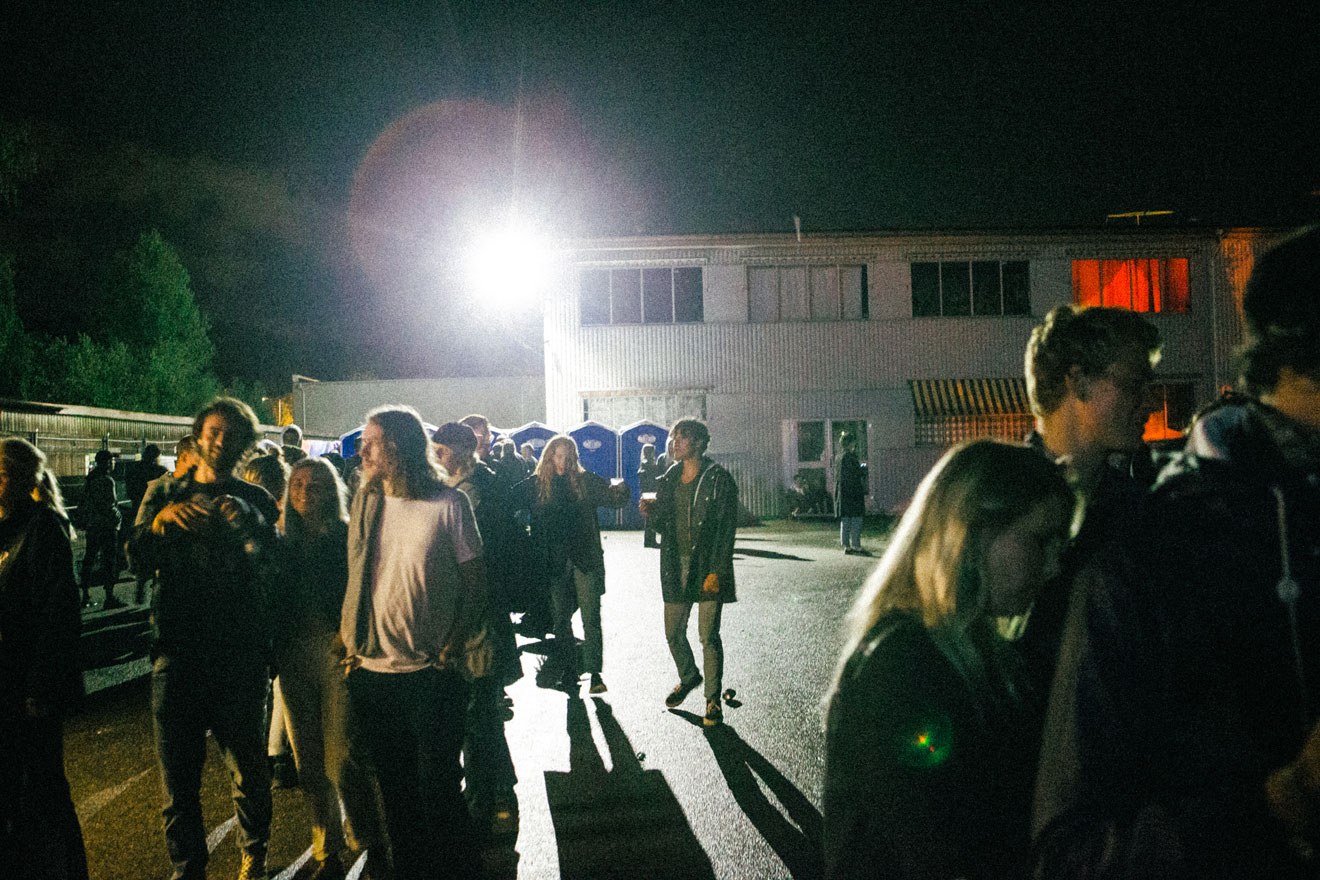
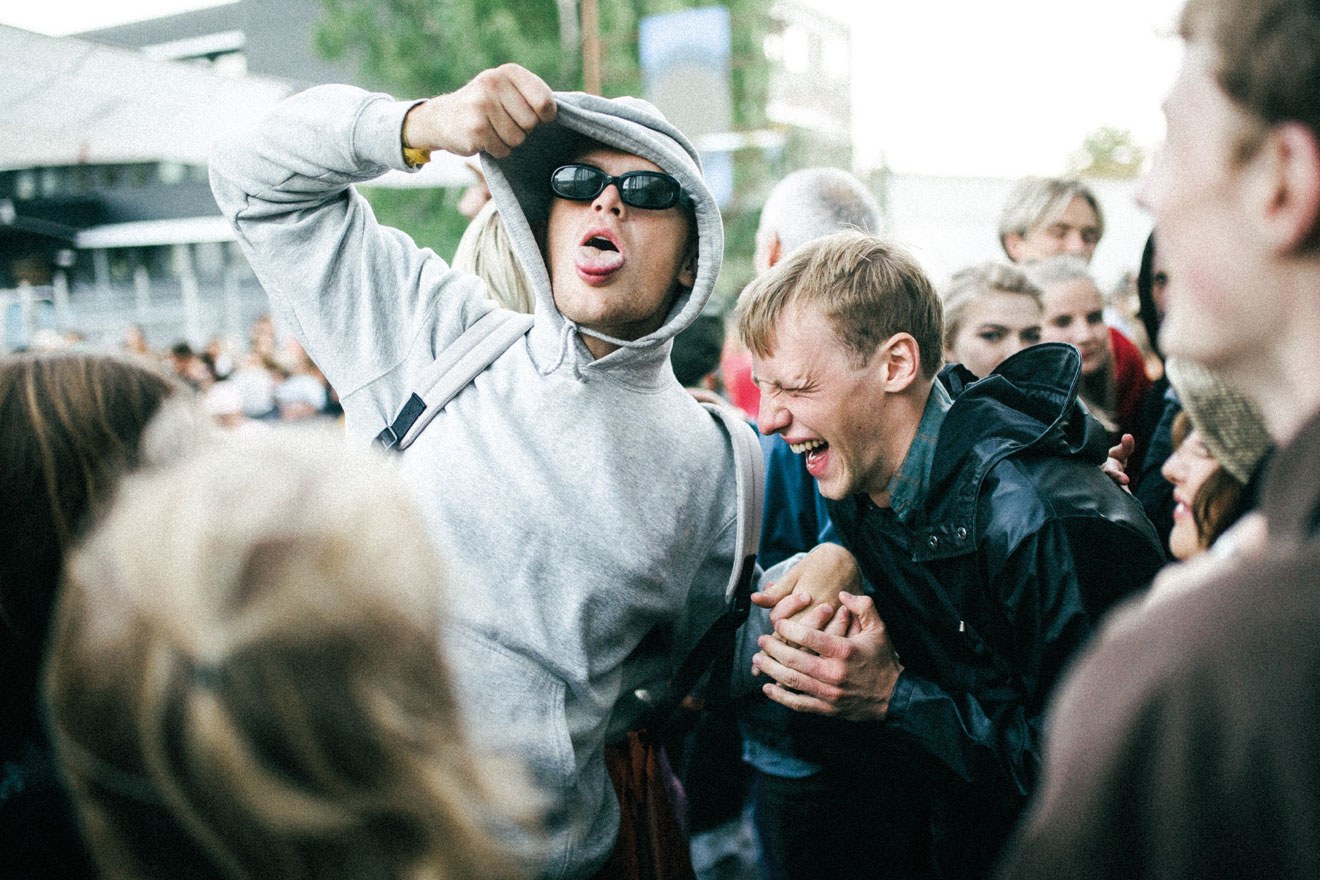
Here, a centrally positioned booth backs onto a wooden terrace, a grassy embankment out front creating a natural tree-lined bowl. The crowd is dense but there’s room for dancers space to stomp with visible abandon, body language open and inviting.
Gothenburg’s Tora Vinter is in charge when we arrive, one of the few homegrown artists on the festival bill. Her genre-defying beats, most recently released through BROR, are made for movement, an accompanying live vocalist adding a dreamlike edge.
By night, Way Out West switches to various locations across the city, house and techno centring on Dunge(o)n. Another relatively intimate arena, this time built from shipping containers situated on the end of a dockland pier, the hallucinatory A/V show from Stockholm’s Studio Barnhus – all trippy visuals and melodic house – is the major Swedish sell.
We ask Vinter how Way Out West reflects a wider Gothenburg scene dominated by clandestine activities and overflowing with native artists.
“A lot of the artists and a lot of the guests I’ve talked to commented on the fact that everyone at the festival was so nice and polite,” she replies. “That’s typical of the city… and the other thing I was thinking was how they created a haven at the Dungen stage I played.”
It’s not hard to grasp her point: attendees at the city’s unlicensed parties demand a lot from events. One promoter, who asked to remain anonymous, explained that self-regulation has been a cornerstone since a fatal fire at a rave decades ago. And pride in what they do means the crews responsible really understand the importance of attention to detail. That techno tunnel, its production levels and clear safety precautions, is a case in point – one we have first-hand experience of.
But while Way Out West’s exceptional organisation, great atmosphere and incredible design fit with Gothenburg’s approach to throwing parties, it should do more to celebrate the city’s abundant dance music bounty. And the possibilities for this are huge.
“Even though, year after year, they do keep booking a small part of the Gothenburg repertoire, if it’s a festival that’s in Gothenburg it would be good to have a lot of local representation as well,” agrees DJ Lily.
“It would be fantastic to see a whole conference part of it that would be more about meeting. They do have this a little, and I know it’s evolving so I’m looking forward to that, but I think the electronic music part could always use some extra room. I would love to meet more people and have more about the industry.”
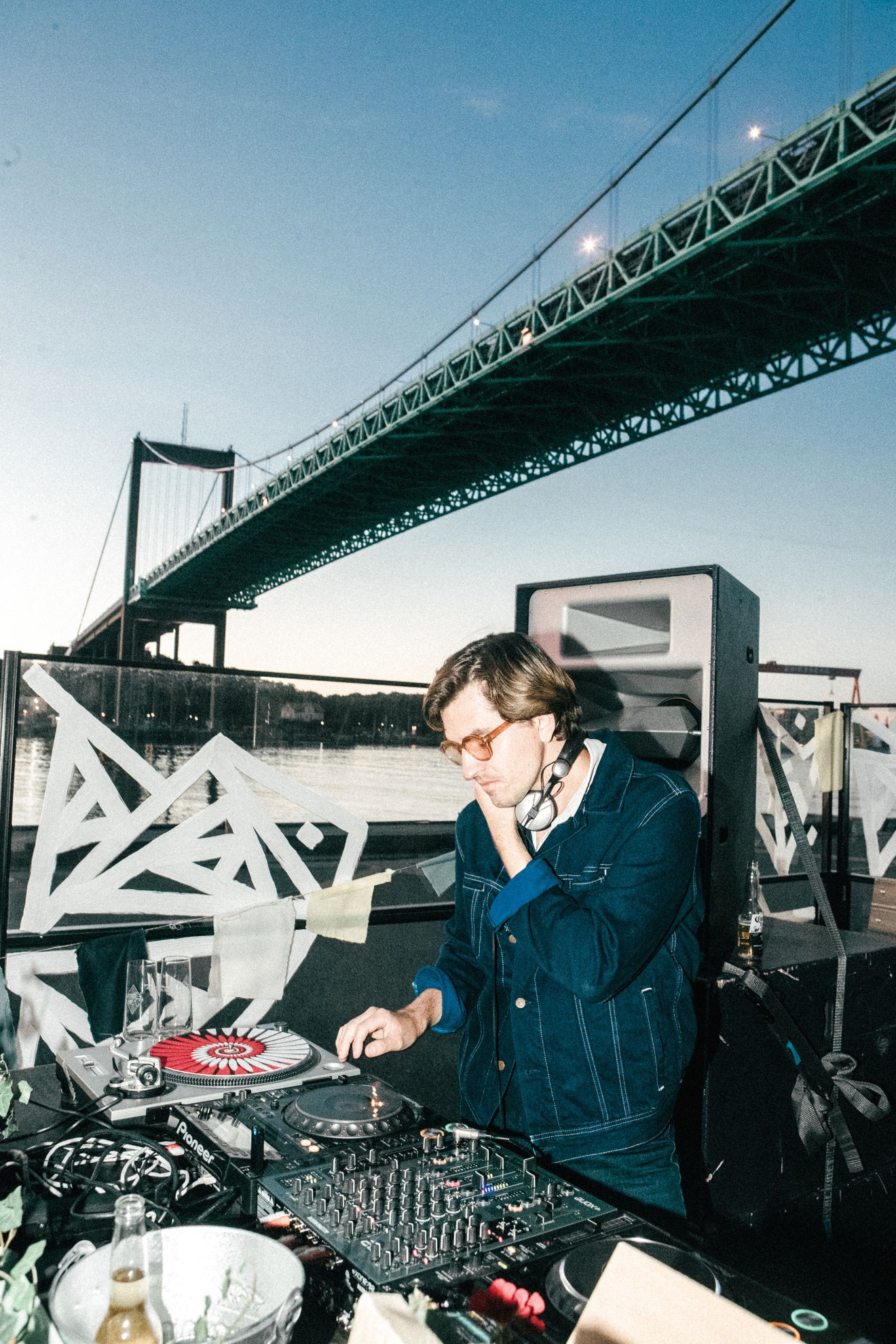
Over at Hotel Pigalle a solution might be emerging, again fuelled by a self-starting attitude. Throughout summer BROR has been co-hosting terrace parties here with Hokus Pokus, a club night promoting female and non-binary acts. In honour of Way Out West professionals and punters are mingling and dancing at this boutique rooftop on Thursday and Friday, with tracks from Cari Lekebusch and Aleksi Perälä served alongside fine cuisine, cocktails, and a smoke machine.
“For me it’s such an unexpected venue to bring that kind of music,” says Hokus Pokus’ Christine Friburg of the Pigalle concept. “My friends have been saying to me, ‘It feels so surreal – taking a fancy elevator up to a penthouse to listen to one of my favourite techno DJs’.
“[Hokus Pokus] started out like a regular club, but the place where I had it closed, so I took it underground,” she continues. “Then it kind of became sometimes an underground party, sometimes a club, so it actually brought more people in to experience both.”
Her words highlight how the city’s musical landscape benefits when there are more opportunities for interaction – and the vulnerability of the licensed club scene. As does the story of Mythos, a legendary warehouse that could have been the focal venue Gothenburg lacks. Restrictions on the number of invite-only events forced things overground, the costs of meeting regulations led to its eventual closure.
Even without interference the underground is not immune to such problems. Jens Wickelgren AKA Enmetertre, head of Jens Records, plays back-to-back with label-mate and friend Pontus Björland at the hotel. After they finish a stellar set of acid, broken electro and off-kilter house they tell us about their unlicensed spot, UFO Studies. An old wooden house surrounded by industrial buildings, they eventually had to put their Martin Audio rig into storage as tight profit margins required more events than was feasible to keep it alive.
The title of their imprint’s latest EP, ‘Music Of UFO Studies’, highlights how partying in Gothenburg is a deeply personal activity for everyone. Events are only possible because of this passionate community’s love and dedication, but the incredible scene exists despite limited support from big platforms and difficulties retaining spaces. The resulting DIY spirit is enviable, infectious and priceless, but we can’t help wonder what things could look like if Gothenburg’s underground was given the chance to fully realise its potential.

